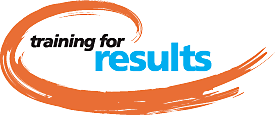David Cameron is asking for the ‘big society’. What does that mean in reality for an individual and how do they go about it? I have founded and am running The Phoenix Legacy, as a complete novice. This is a voluntary project to enable people over 50 to be more active in mind, body and spirit, as part of the Team Dorset 2012 Legacy. I thought it might be useful to share some of my learning, in the hope it might help others.
1. Check what is already out there
Over the last eighteen months, it has been incredible to learn the amazing amount of good work and hard effort that is already being done, and we haven’t even touched the tip of the iceberg yet. I believe this is generally unrecognised and poorly appreciated. I would advise David Cameron to take stock of what is available and how hard pressed the ‘big (hearted) society’ already is for resources.
Before you embark on a venture, really do some market research. Do people really want what you are offering? We researched with key organisations working with older people to check that it was the right thing to do and that we were not ‘recreating the wheel’. We then ran a pilot in Weymouth & Portland. As a result, we changed our remit from being one of stimulating activity provision to communicating what already exists to a wider audience. Be prepared to change your vision.
2. Think of the consequences
I was inspired to get involved in this project by Gary Fook’s request for ideas for a 2012 Legacy for Dorset. When I put my concept forward, it seemed such a good idea, but I did not take the time to consider the consequences. This is for me, my family, my business and the community. When you come up with an idea, it is too easy to take it personally. I have learnt it pays to let go of the idea, and distance your self from it, before making a decision to proceed. It is better to seek other ideas and views. A quote I read recently said ‘if the idea you have is the only idea you have, it’s probably the wrong one’.
3. Make sure you have the time and energy
From my experience, calculate how much time you have to devote to a voluntary project and then multiply that figure by at least 4. However good you are, I would suggest that it will take more time than you ever imagine.
What surprised me was the impact on energy. Trying to run a project at the same time as a business has been draining on both focus and energy. Hence why I haven’t written a blog for two months. It is vitally important therefore to keep in good health and not get stressed. (So much easier to write than do). When the successes come, however, it is exciting and very motivating.
4. It’s OK to ask for help
It has been very gratifying when I have finally got round to ask for help, how supportive people have been. There is an enormously generous public out there. The only caveat to that is to make sure they will deliver. You can spend more time chasing up offers of help and ensuring the task gets done, then if you had done it yourself in the first place. Perhaps I should make sure I practice what I teach on my delegation course!
Kathy Coward has been invaluable in providing moral support and encouragement. I recommend a buddy/mentor to help you through the bad times and celebrate success. My next task is to identify sources of advice on the intricacies of running a voluntary organisation, as it all starts to get more complicated.
5. You need patience
Patience is not one of my virtues, but you need it in bucket loads for two reasons. Firstly, you need it to deal with the bureaucracy. I thought I was getting involved to make a difference, but find myself dealing with public liability insurance, CRB checks, risk assessments, volunteer management books, funding bid paperwork that account for half the demise of the Amazon rainforest, and so much more. This is not why I started on this.
Secondly, when you are leading without authority and dealing with voluntary work and donations, you cannot expect the same speed of delivery as in a commercial venture. Care has to be taken not to offend in the name of speed.
I can see that this is going to be an on-going series. If you have anything to add that can help save me or others from making unnecessary mistakes, please post a comment.
Free Leadership Toolkit Guides Series
Insights into Leadership and Management
Monthly newsletter plus get my free Leadership Toolkit Guides - a continually updated series of short leadership skills guides. Subscribe now.
I send out an email when I publish new "Monthly Morsels" - Insights into Leadership and Management.
Once subscribed you will be sent a link to the Leadership Toolkits download page.

Comments are closed.